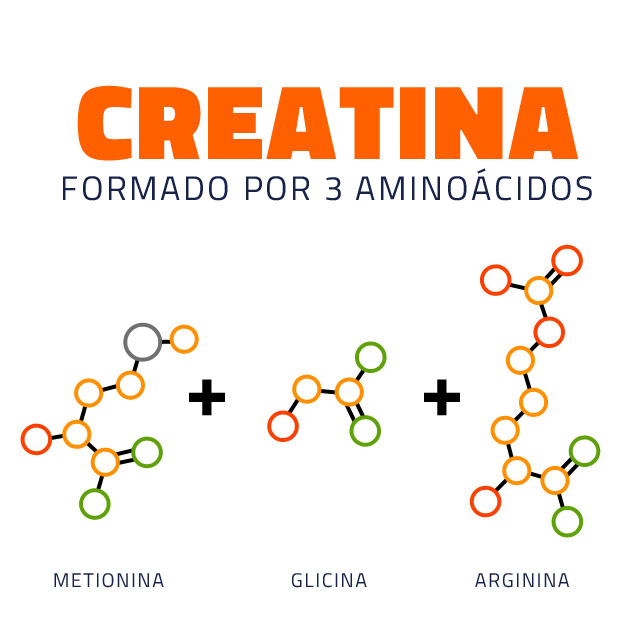Nutrition in recovery from an injury is a little deconstructed theme, even though for the improvement of performance the benefits of implementing nutritional strategies, including supplementation, are numerous.
Supplementation in creatine is one of the most studied, safe and widespread in this sense, with proven ergogenic and therapeutic potential(1-3). In the same way that it indirectly promotes sports performance by optimizing recovery from post-training muscle damage, it also seems to have interesting results in terms of prevention and injury treatment.
WHAT DO THE STUDIES SHOW?
If in the past it was thought that creatine could increase the risk of cramps, muscle contractures, heat/dehydration-related or other injuries, science has been debunking these assumptions and even countering them, demonstrating a protective effect(4, 5). Several studies conclude that athletes supplemented with creatine have as many or fewer injuries as non-supplemented athletes(4, 6, 7).
Creatine supplementation can be beneficial by simply correcting a deficit. During periods of extreme inactivity, such as when you are immobilized due to injury, creatine levels can drop by as much as 25%(8). Those who produce this amino acid deficiently at an endogenous level, have a decreased intake (vegetarians and vegans as the most representative example) or train very intensively are also susceptible to having a deficit and need supplementation.
This contribution can be explained by mechanisms of action of creatine that include neuroprotection, promotion of the replacement of phosphocreatine and muscle glycogen reserves, greater tolerance to heavy training loads (less perception of effort-fatigue, maintenance of sports performance for a longer period of time), increased expression of growth factors(9)The improvement of thermoregulation and hydration, and the reduction of inflammation(1-3).
In situations of temporary immobilization due to injury, and consequent muscle atrophy with reduced functional capacity, oral creatine supplementation seems to mitigate the loss of muscle mass in the affected limb and to stimulate to a greater degree muscle hypertrophy and strength in response to rehabilitation exercises than taking a placebo(9).
But the results don't stop with the muscle. A recently published study that evaluated the effect of creatine supplementation on injury rehabilitation by overload in the tendons of adolescent swimmersfound that the supplemented group lost less lean body mass during the immobilization period, gained more after four weeks of rehabilitation, and had a faster rate of pain intensity reduction than the placebo group(10).
Thus, it is increasingly evident the differentiating role that creatine may play in the management of sports injury. In any case, it is recommended that you always consult a specialized health professional before starting a supplementation protocol, so that an adequate dosage is established and your health condition is safeguarded.
To learn more about the role of nutrition in injury recovery, we invite you to attend the Nutrition in sports: from theory to cooking - Blended Learning.
Authors
Rita Giro
Nutritionist, MSc student in Sports Nutrition, University of Liverpool
António Pedro Mendes
Nutritionist, Coordinator of the Sports Nutrition and Physical Activity Unit at Clínica Espregueira
Bibliography
- Rawson ES, Miles MP, Larson-Meyer DE. Dietary Supplements for Health, Adaptation, and Recovery in Athletes. International journal of sport nutrition and exercise metabolism. 2018; 28(2):188-99.
- Maughan RJ, Burke LM, Dvorak J, Larson-Meyer DE, Peeling P, Phillips SM, et al. IOC Consensus Statement: Dietary Supplements and the High-Performance Athlete. International journal of sport nutrition and exercise metabolism. 2018; 28(2):104-25.
- Kreider RB, Kalman DS, Antonio J, Ziegenfuss TN, Wildman R, Collins R, et al. International Society of Sports Nutrition position stand: safety and efficacy of creatine supplementation in exercise, sport, and medicine. Journal of the International Society of Sports Nutrition. 2017; 14:18.
- Kreider RB, Melton C, Rasmussen CJ, Greenwood M, Lancaster S, Cantler EC, et al. Long-term creatine supplementation does not significantly affect clinical markers of health in athletes. Molecular and cellular biochemistry. 2003; 244(1-2):95-104.
- Bassit RA, Pinheiro CH, Vitzel KF, Sproesser AJ, Silveira LR, Curi R. Effect of short-term creatine supplementation on markers of skeletal muscle damage after strenuous contractile activity. Eur J Appl Physiol. 2010; 108(5):945-55.
- Greenwood M, Kreider R, Greenwood L, Byars A. Cramping and injury incidence in collegiate football players are reduced by creatine supplementation. Journal of Athletic Training. 2003; 38:216-9.
- Greenwood M, Kreider RB, Melton C, Rasmussen C, Lancaster S, Cantler E, et al. Creatine supplementation during college football training does not increase the incidence of cramping or injury. Molecular and cellular biochemistry. 2003; 244(1-2):83-8.
- MacDougall JD, Ward GR, Sale DG, Sutton JR. Biochemical adaptation of human skeletal muscle to heavy resistance training and immobilization. Journal of applied physiology: respiratory, environmental and exercise physiology. 1977; 43(4):700-3.
- Hespel P, Op't Eijnde B, Van Leemputte M, Urso B, Greenhaff PL, Labarque V, et al. Oral creatine supplementation facilitates the rehabilitation of disuse atrophy and alters the expression of muscle myogenic factors in humans. The Journal of physiology. 2001; 536(Pt 2):625-33.
- Juhasz I, Kopkane JP, Hajdu P, Szalay G, Kopper B, Tihanyi J. Creatine Supplementation Supports the Rehabilitation of Adolescent Fin Swimmers in Tendon Overuse Injury Cases. Journal of sports science & medicine. 2018; 17(2):279-88.

